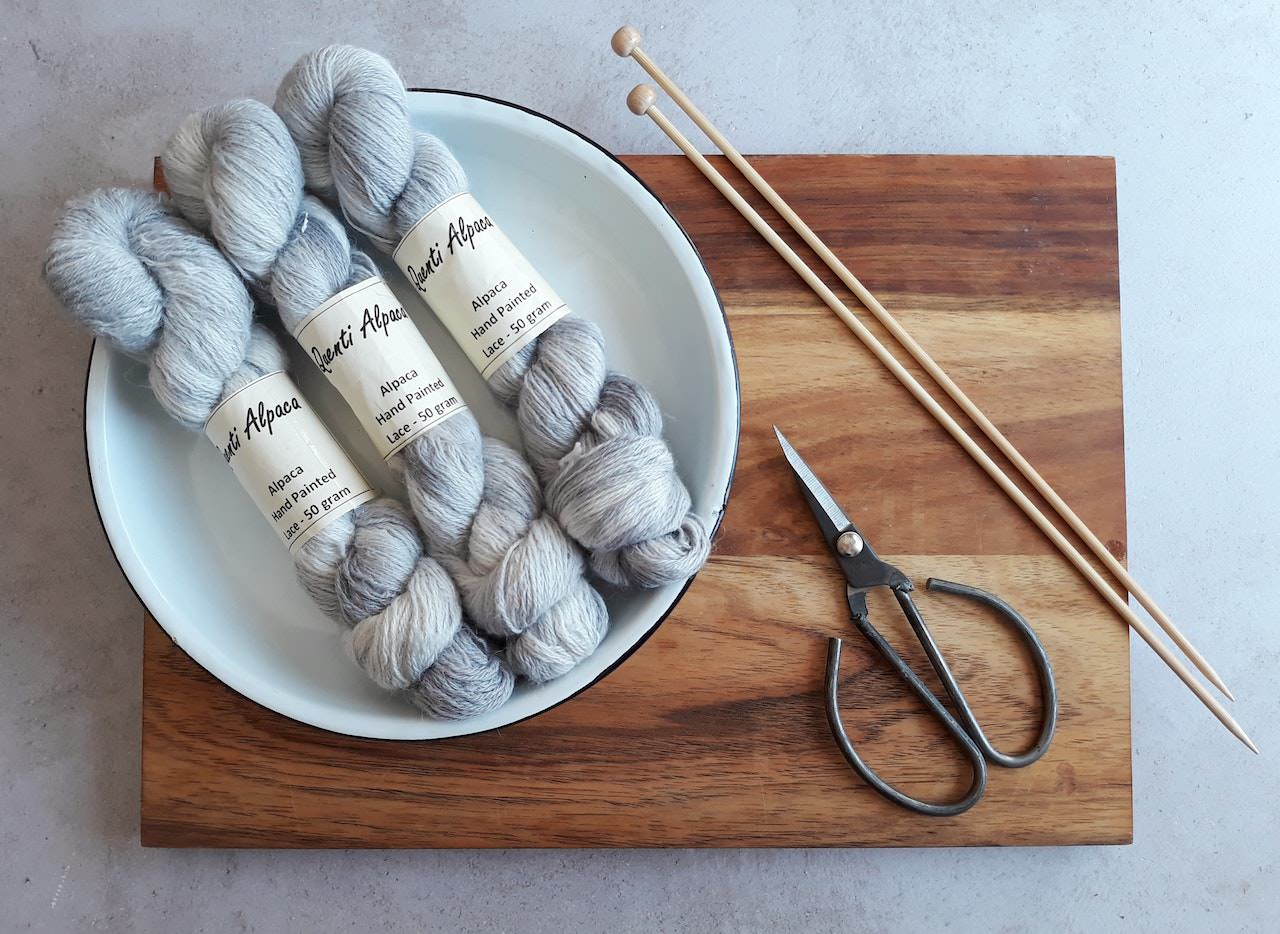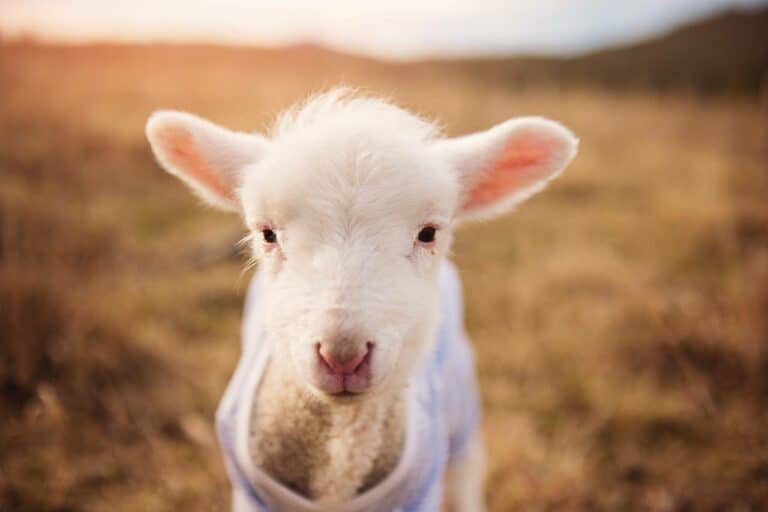Table of Contents
Last updated on April 28th, 2023 at 06:36 pm
Is Wool Vegan? Understanding and Alternatives
Wool has been a popular material for centuries due to its insulating properties and durability. However, over time, the harmful effects of wool production on animals have come to light.
Many of those who choose a vegan lifestyle wonder, “Is wool vegan?” In this post, we’ll explore the ethics of wool production, alternatives to using wool, and how to identify animal-friendly clothing options.
Is Wool Vegan?
Wool is not vegan as it is derived from the hairs of various animals, primarily sheep. Wool is a fabric from the natural fibers found in the fleece of animals like sheep, goats, rabbits, camels, and others. It is composed of a matrix of keratin proteins that are highly durable and elastic.
What is Wool and Why is it Popular?
Wool is a natural fiber that comes from the fleece of sheep. It’s commonly used in clothing items such as sweaters, coats, socks, carpets, and blankets.
Wool’s popularity is due to its unique properties, such as insulating properties that keep us warm in cold weather and the ability to wick away moisture. However, the production of wool involves the exploitation of animals and can be considered animal cruelty.
The Process of Harvesting Wool and Animal Cruelty

Wool is harvested by shearing the fleece of sheep, which can cause a lot of stress and discomfort for the animals. Lack of proper care, rough handling, and unsanitary conditions can lead to infections, injuries, and even death.
Additionally, the breeding process is often inhumane and focused on maximizing profits rather than the welfare of the animals.
Related: Plant-Based Diet and Sustainability
Pros and Cons of Using Wool from an Ethical Standpoint
On the one hand, wool is a renewable resource that can be produced sustainably. Wool is also biodegradable, which means it doesn’t create waste that contributes to pollution.
On the other hand, producing wool often involves cruelty to animals. It also contributes to environmental degradation, such as land clearing to make room for grazing sheep and chemical treatment of the fleece to prevent infestation.
Alternatives to Using Wool
Ethical alternatives to wool include organic cotton, hemp, and bamboo fabrics. Organic cotton is produced without pesticides and chemicals, which means it’s less damaging to the environment.
Hemp is a durable fabric that doesn’t require a lot of water or fertilizer to grow. Bamboo is a sustainable option that can be grown without pesticides and is also biodegradable.
New Technology and Faux-Wool Materials
Technological advances have allowed the creation of faux-wool materials that mimic the look and feel of natural wool. For example, recycled polyester, rayon, and acrylic can be used to create clothing and accessories that look and feel like wool without harming animals. These materials are also affordable and widely available.
Identifying Ethically-Sourced Clothing and Animal-Friendly Materials
When shopping for clothing, look for certifications such as Global Organic Textile Standard (GOTS) or The Soil Association.
These certifications ensure the clothing is made from organic materials grown without harmful chemicals. Additionally, check the labeling and materials list to ensure the clothing doesn’t contain animal products.
Benefits of Sustainable Fibers for Vegan Apparel
Sustainable fibers such as bamboo or hemp have numerous benefits, including durability and versatility.
Bamboo is known for its softness and is excellent for creating comfortable clothing. Hemp is naturally antibacterial and can help regulate body temperature, making it perfect for clothing such as activewear or outerwear.
3 Popular Brands Offering Vegan-Friendly Options for Wool
Many major brands have responded to consumer demand for cruelty-free clothing and have begun creating vegan-friendly options. Brands such as Patagonia, Stella McCartney, and Vaute Couture offer faux-wool options that are stylish and eco-friendly.
Conclusion
All in all, wool is not vegan due to the harm done to animals during its production. However, ethical alternatives such as organic cotton, hemp, bamboo, and faux-wool materials offer comparable benefits without animal cruelty.
When shopping for vegan apparel, look for certifications, labels, and materials lists to ensure your clothing is ethically sourced and sustainable. We can promote a more humane and sustainable future by making informed choices.
Frequently Asked Questions
Is acrylic wool vegan?
Yes, acrylic wool is vegan. Acrylic wool is made from synthetic fibers, typically acrylonitrile or polyacrylonitrile, derived from coal, air, water, oil, and limestone. It does not contain any animal products and therefore is suitable for vegans.
Acrylic wool has many advantages over traditional wool. It is much more affordable than natural wool and easier to care for since it does not require the same level of maintenance as natural wool. Additionally, acrylic wool is lightweight and breathable, making it an excellent choice for warm-weather garments.
While acrylic wool may be a good option for vegans looking for an affordable alternative to natural wool, there are some drawbacks to consider. Acrylic fibers can be less durable than natural fibers and may pill more quickly when exposed to friction or abrasion.
Additionally, some people find that acrylic fabrics can be less comfortable against the skin than natural fabrics such as cotton or linen.
Overall, acrylic wool can be a terrific vegan-friendly alternative to traditional wool if you are looking for an affordable fabric with good breathability and lightweight properties.
Is merino wool vegan-friendly?
Is Merino Wool Vegan? No, merino wool and other types of wool are not vegan-friendly because wool comes from sheep. Merino wool comes specifically from the Merino breed of sheep, known for having very soft and fine wool. The production of wool involves a staggering degree of cruelty and animal suffering, making it incompatible with vegan values.
Alternatives to wool exist that are both animal-free and sustainable. For example, a fabric made from hemp or feudal (a synthetic material) can be used as an animal-free alternative to merino wool. Recycled merino wool is also not considered vegan because it was initially obtained from an animal without consent.
Veganism calls for avoiding all animal products and byproducts to reduce the amount of animal suffering in the world. Therefore, if you are looking for a vegan-friendly material for clothing or other items, look into alternatives to merino wool, such as hemp or feudal fabrics.
Is yarn vegan?
Are you wondering if yarn is vegan? The answer is more than a simple yes or no, depending on the type of yarn. Plant-based yarns such as cotton, hemp, linen, and bamboo are vegan. Protein or animal-based yarns such as wool, silk, and alpaca are not vegan.
Many options are available if you’re looking for vegan-friendly yarns for knitting or crochet projects. Popular choices include acrylic and cotton. Other plant-based materials like Tencel, rayon, viscose, and Giza cotton can also be used to make vegan yarns.
When shopping for vegan yarns, look for labels that say “vegan” or “plant-based.” You can also check the product description to see the materials used to make the yarn.
No matter what type of project you’re working on, there’s sure to be a vegan-friendly option that fits your needs.

